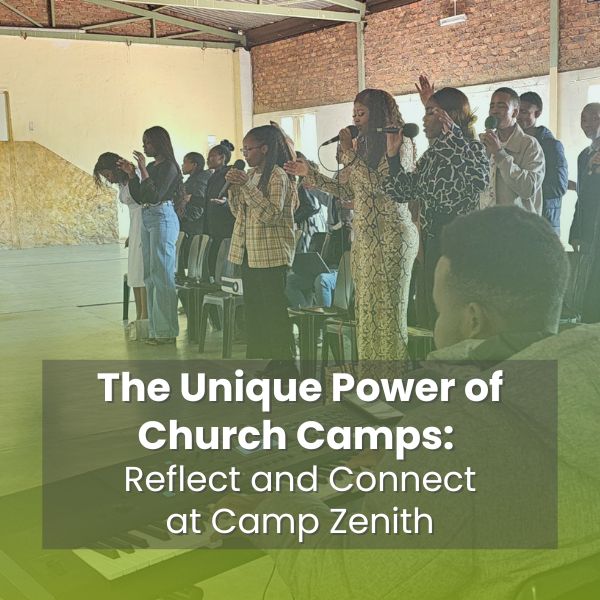
How to plan
a camp on a tight budget
Planning a camp with limited resources can feel like building a bonfire with a box of matches, or hiking on a tightrope, or squeezing a dry lemon. We understand that camp cost struggles are a real problem for so many in South Africa. This is why we decided to offer up (for free, lol) some money saving tips for camps.
Several factors may present cash-saving opportunities such as; venue promotions, the size of the group, the dates of the camp, the catering plan, the transportation plan, and fundraising opportunities.

Tip 1) Venue Promotions.
Promotions are a great way to save money. Before booking your camp, check if venues you are considering have promotions on offer that might suit your camp. At Camp Zenith, we have 3 monthly promotions which are always available on our home page of our website. Feel free to check there before your next camp, and enquire through the form connected to the discount most suitable.
Tip 2) Special Promotions via a newsletter sign-up.
Looking for extra savings? Sign up for the Camp Zenith mailer. We send out a monthly newsletter via email with some great camping tips and tricks. Inside each mailer is a subscribers-only discount that is worth looking at.
It is important to note when securing promotional discounts, that these are often time-sensitive and it’s important to access these while they are available. Once receiving a quote with a discount, it’s important to confirm your booking before that quote expires as that promotion might not be available later.
Tip 3) Large groups can use numbers to leverage a discount:
When it comes to saving money on camp, the size of the camp may present a unique opportunity for cost reduction. In many cases, larger groups can leverage their numbers to negotiate discounts with venues.
Defining what constitutes a large group may vary from one venue to another. At Camp Zenith, we would consider a group of 100 people to qualify as large. Discounts can not be guaranteed, and depend on several factors, but larger groups could certainly ask.
It’s crucial, however, for groups to exercise caution and avoid overcommitting, as venues often enforce minimum numbers. Therefore, groups should err on the side of conservatism when estimating the number of campers. If a discount based on group size isn’t attainable, there are alternative avenues to achieve cost savings.
Tip 4) Strategic selections of dates
Choosing dates that are in quieter seasons may also be an opportunity for discounted rates. Moreover, midweek dates that fall outside of school holidays may also be eligible for discounts.By remaining open to alternative camp dates, organisers can capitalise on these potential discounts, ultimately leading to substantial cost reductions in the overall camp budget.
Tip 5) The 1-night camp
This strategy includes starting the camp on a Saturday morning and leaving on Sunday afternoon.The idea is that by shaving off the first night, supper, and breakfast the camp can be significantly cheaper.
There are however a few points to consider:
- There is a lot of bonding that happens on the first night, so this shouldn’t be the first option that a group looks at but rather a last resort, as a 1-night camp can’t compete to a 2-night camp, but is certainly better than no camp at all.
- From a venue point-of-view, one-night weekends are not something most campsites would consider hosting because it makes the other weekend night unsellable. Campsites mostly rely on selling both Friday and Saturday nights.
- That said, there are some instances where a one-night camp would be feasible.
3 Examples include:- Scenario 1: if the one-night-camp happened over a public holiday in the midweek. This is a great way to run a one-night-camp. This is an option that few consider because it’s an uncommon idea, but it’s an incredibly practical camp option for groups on the tightest of budgets.
- Scenario 2: if the size of the group is big enough to meet the minimum requirements of a smaller group over 2 nights. Financially this is similar and might be an option. An example at Camp Zenith is that our minimum number for our top camp (Hillside Haven) is 20 people per night, so a 1 night of 40 people would be the same income as 20 people x 2 nights and therefore an option.
- Scenario 3: A last minute camp: Cancellations happen. If your camp has to be a one-night camp, contact venues a week or 2 before your dates to see if they have space, you might be lucky and find space that can fit in your budget.
Tip 6) Carefully consider your catering options
There are ways to save money on the catering options of your camp. Many people think that self-catering is by-default the cheapest option and there are times when that is true, but this isn’t true for every camp.There are costs that many underestimate, or don’t consider at the point of enquiry.
Factors such as:
- Kitchen fees,
- Catering team’s costs (even if they are volunteers, there are still costs to include, such as their food and accommodation fees),
- Unexpected food price increases,
- Transportation of the food to the campsite,
- Cleaning supplies.
If you are looking to self-cater for the reason of saving camp costs, we would suggest getting a quote on the self-catered option as well as the catered option and comparing not only the 2 quotes but rather what you would expect to pay in full on both options.
At Camp Zenith, we offer a Budget Menu, which is something to consider if you are looking to cut catering costs.
Tip 7) Shaving off some meals
This is another tool in the cash saving toolbox that if used well, can help you save on your camp fees.Some ideas can include:
- Shaving off the on-arrival supper. Most weekend camps start with arrival before supper and eating together, this is a meal that can be cut if you need to save costs, but campers need to know in advance to either eat before coming or to bring their own packed picnic supper. Hungry campers are not happy campers.
- Shaving off the Sunday lunch: Most weekend camps will depart after lunch on Sunday, but this is also a spot where one can cut if planned well. The caution here is that one can’t simply run the camp until lunchtime and then leave with hungry campers because that hunger is the emotion that they will remember when they think back on camp and this would undo all the good of the camp. But leaving around 10:00 would mean that campers are full from breakfast. This means cutting the camp short a bit, and if required, it’s an option to consider.
- Doing the Saturday lunch with non-kitchen options: This option would be for the camp that has opted for a catered camp, but needs to cut costs so cuts the Saturday lunch from the campsite’s list of meals to supply. But campers have to eat, so one can look at meals like hotdogs (most campsites would provide an urn, and this can be used to warm up the sausages), or lunch options from a nearby takeout. A suggestion would be to order ahead and plan this well. One should consider that this option could result in cold meals, as it would take time to transport the cooked meals to the venue.
Tip 8) Meal Donations
A budget-friendly option to reduce the camp costs could be to approach other departments in your congregation and ask them to take care of one of the camp meals.An example of this could look like this:
A church is having a youth camp of 50 campers and asks the Ladies Ministry to commit to providing 60 packed lunches (a little extra is always a good idea). If the Ladies Ministry agrees, this shaves off the cost of one of the meals from the campers without compromising on any of the camp experience.
For this to work well, the camp organisers need to plan well and communicate well.
Those donating the meals would need to understand that a kitchen might not be available and plan accordingly or perhaps if something like a pasta bake was being donated, there has been communication with the campsite to confirm if an oven would be available (there might be a surcharge for the electricity being used).
Another way to save through meal donations is if some of the raw ingredients can be donated. In cases like this, the self-catered option makes the most sense and this is usually possible when there is a contact within the organisation that can donate such raw ingredients. We have seen this before so it’s worth putting it out there as something to consider if such individuals/business people are in the congregation.
Tip 9) Transport costs
Transport costs need to be considered into your camp costs, but depending on a few factors this could be an area to save.
We would like to say that safety is always the number one priority and that all transport options considered should factor this in first.
Here are some ways you can save on transport costs:
- Consider a campsite that’s not too far, as this will affect the transport costs.
- Shop around for bus quotes, but especially consider bus companies with depots closer to your church/school, as this will affect the bus quote.
- An option for smaller groups: ask trustworthy individuals in the congregation to join a lift club, offering lifts to a few campers. This can also save if the drivers understand that they are covering the petrol costs.
Ensure that cars and buses are never overloaded, while we are trying to cut costs, we can’t cut safety.
Tip 10) Fundraising
Plan your camps well in advance and then provide events to fundraise for your campers to be able to raise the funds to pay for their camp costs.
We will post a blog in the future with fundraising ideas, so be sure to join the mailing list to get access to that as it comes out.
Share your budget-saving tips
Feel free to share your stories with us on how you cut costs for camp and we can share them with others who are looking for ways to make it possible to get people on camp, who otherwise couldn’t afford it.
Share this article
Need to plan a budget-friendly camp?
Check out our latest promotions
Every month we release 3 new promotions that can be used to help you save on your next camp. If there isn't a promotion there today that suits your needs, come back next month, to see what new promotions are running
Go to promotions













